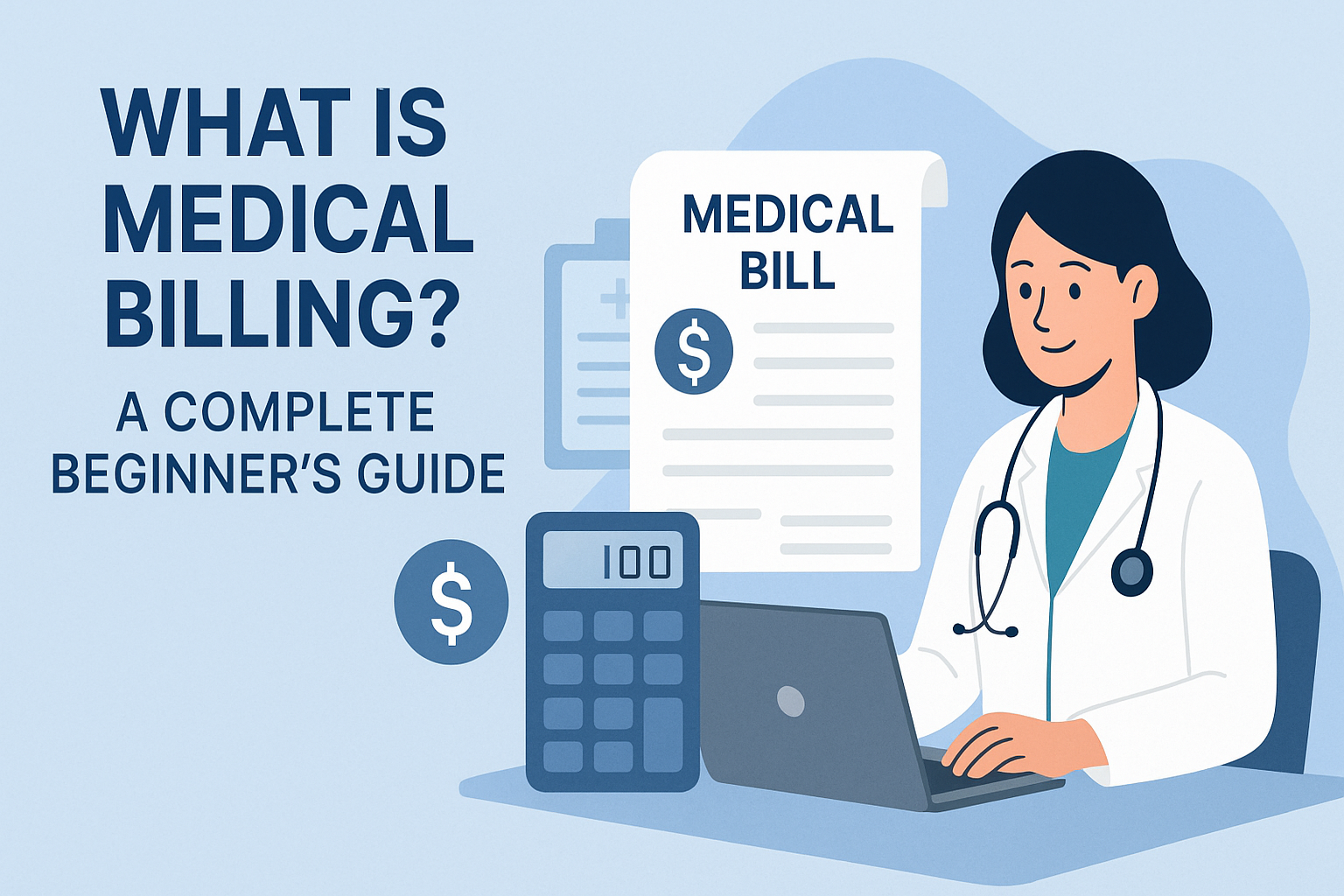Introduction
Have you ever wondered what happens after you visit a doctor, or how the clinic or hospital gets paid by your insurance company?
That entire process is known as medical billing, and it’s one of the most crucial components of the U.S. healthcare system.
Medical billing converts medical visits, diagnoses, and treatments into insurance claims, enabling providers to receive payment for their services. While it may sound complicated, understanding how it works helps healthcare professionals maintain a smooth and error-free revenue cycle.
In this guide, we’ll break down what medical billing really is, how it works step by step, and why partnering with a trusted billing company like MedifyBill can make the process faster, easier, and more profitable for your healthcare practice.
What Exactly is Medical Billing?
Medical billing is the process of converting healthcare services into standardized claim forms that are sent to insurance companies for reimbursement.
Think of it as the bridge between the doctor’s office, the insurance provider, and the patient, ensuring everyone’s financial responsibilities are clear and accurate.
In simple terms:
The doctor treats the patient. The billing team codes the service. The insurance company processes the claim. The provider gets paid.
Step-by-Step: How the Medical Billing Process Works
1. Patient Registration
Everything begins when a patient books an appointment. Their personal and insurance details are collected and verified before the visit.
2. Insurance Verification
The billing team checks the patient’s insurance coverage, eligibility, and benefits. This step helps prevent claim denials in the future.
3. Medical Coding
Certified coders translate the patient’s diagnosis and procedures into standardized codes such as ICD-10, CPT, and HCPCS.
4. Claim Submission
Once coding is complete, the claim is submitted electronically to the insurance company through a secure clearinghouse.
5. Claim Adjudication
The insurer reviews the claim to determine coverage and payment amounts.
6. Payment Posting and Denial Management
Payments are recorded, and any denied or underpaid claims are corrected and resubmitted promptly.
7. Patient Billing
Finally, any remaining patient balance is billed to ensure full payment for the services provided.
Why Medical Billing is So Important
An efficient billing process is essential for the financial health of every healthcare organization. It ensures:
- Faster and more accurate payments
- Reduced claim denials
- Improved cash flow and financial stability
- Regulatory compliance (e.g., HIPAA, CMS)
- Better patient satisfaction through clear billing
When billing errors occur, revenue leaks and administrative headaches follow. That’s why professional billing support is a game-changer.
Common Challenges in Medical Billing
Even experienced medical offices face hurdles such as:
- Claim denials from missing or incorrect information
- Payment delays due to coding errors
- Constant updates to insurance and CMS regulations
- Lack of follow-up on unpaid claims
- Time-consuming administrative tasks
These challenges can easily drain time and money, which is why many providers choose to outsource medical billing to experts who handle everything efficiently.
Why Choose MedifyBill for Medical Billing Services in the USA
At MedifyBill, we understand that healthcare providers want to focus on patient care not paperwork. Our team handles your entire billing cycle with accuracy, transparency, and adherence to compliance standards.
Here’s what sets us apart:
- Clean claims and precise coding for maximum reimbursement
- Quick denial resolution and consistent AR follow-ups
- HIPAA-compliant systems for secure data handling
- Dedicated billing teams for every client
- 24/7 support and detailed performance reporting
Whether you manage a small practice or a multi-specialty group, MedifyBill helps you streamline operations, reduce denials, and increase revenue without adding extra administrative burden.
Final Thoughts
Medical billing may sound like a behind-the-scenes task, but it’s what keeps the healthcare system running smoothly. When done correctly, it ensures that doctors are paid on time, patients are billed accurately, and practices remain financially strong.
If your billing process feels overwhelming or time-consuming, let MedifyBill take it off your hands. We specialize in efficient, transparent, and result-driven billing solutions for healthcare providers across the USA.
FAQs
1. What does a medical billing company do?
A medical billing company handles the entire billing process for healthcare providers from coding and claim submission to payment posting and denial management. Their job is to ensure that healthcare providers receive prompt and accurate payment for the services they provide.
2. What’s the difference between medical billing and medical coding?
Medical coding involves converting diagnoses and treatments into standardized codes (like ICD-10 and CPT), while medical billing uses those codes to create and submit claims to insurance companies for payment. Both work hand in hand to keep the revenue cycle running smoothly.
3. Why should healthcare providers outsource medical billing?
Outsourcing medical billing saves time, reduces administrative work, and improves claim accuracy. With experts handling the process, providers can focus more on patient care while ensuring consistent cash flow and fewer denials.
4. How long does the medical billing process take?
On average, insurance claim processing can take anywhere from 15 to 45 days, depending on the payer’s rules and the accuracy of the submitted claim. Working with a professional billing service, such as MedifyBill, can significantly expedite this timeline.
5. Is medical billing secure and HIPAA compliant?
Yes — reputable billing companies like MedifyBill strictly adhere to HIPAA guidelines to protect patient data and ensure the secure handling of all health and financial information.
6. What types of practices can benefit from medical billing services?
Practices of all sizes from solo physicians to multi-specialty clinics and hospitals can benefit. Medical billing services are especially valuable for providers seeking to increase reimbursements and minimize claim denials without incurring additional administrative costs.
